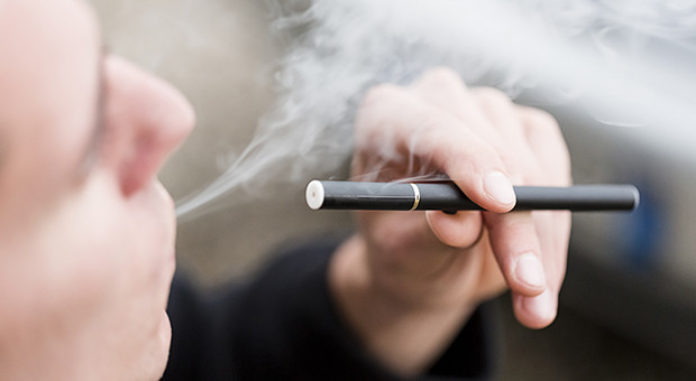INDIANAPOLIS (Network Indiana) — Health advocates are making their final public pitch for a cigarette tax hike:
Senate Republicans will unveil their version of a state budget next week, with a final bill expected two weeks after that. So far, they haven’t tipped their hand on what they’ll do with the cigarette tax. President Pro Tem Rod Bray (R-Martinsville) has said the House budget’s 50-cents-a-pack increase may be either too big or too small — too big to satisfy opponents, and too small to accomplish the goal of discouraging people from smoking.
Members of a coalition of health and business groups have argued for doubling the current one-dollar tax to two dollars, or tripling it to three dollars. Bill Waltz with the Indiana Chamber says the goal is a healthier state, not more money — but he says doubling the tax would bring the state an estimated half-billion dollars to put toward health costs.
The House budget would also tax e-cigarettes for the first time, at 10-percent of the retail price. Indiana Libertarian Party Chairman Evan McMahon also chairs the Indiana Smoke-Free Alliance, a coalition of vaping businesses. He says the group supports that proposal, calling it appropriate for the industry to bear part of the state’s budget as long as it’s not unreasonably high.
The Senate Appropriations Committee’s final budget hearing before rolling out its proposed changes featured testimony from several social service groups who comprise a tiny slice of the state budget, but who are urging senators to increase that slice due to pressure from the pandemic. The Indiana Boys and Girls Clubs say they were open longer than usual to pick up the slack from schools being closed. Indiana food banks and domestic violence shelters say the pandemic made it more difficult to hold their usual fundraisers, while increasing demand for their services.
Kathy Williams with the Indiana Coalition Against Domestic Violence links the pandemic to an increase in the frequency and severity of domestic abuse. She says the isolation of the pandemic both increased stress and made it harder for victims to get out of the house. And she notes the pandemic also saw an increase in alcohol consumption.
Legislators have already committed to an assistance fund for restaurants and hotels, and money for summer school for kids who lost ground when they couldn’t go to school.





